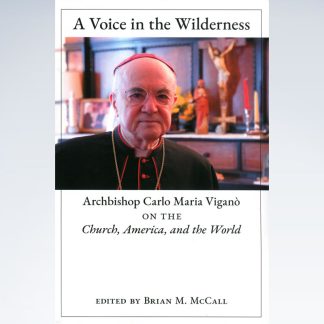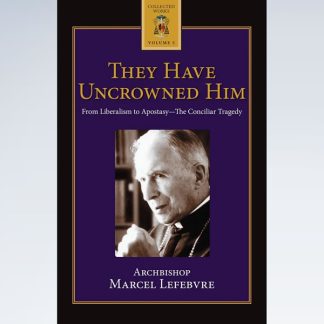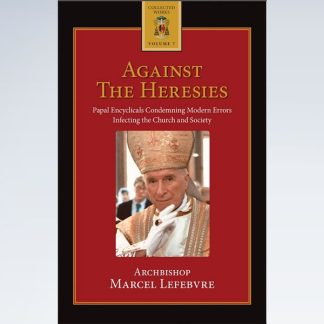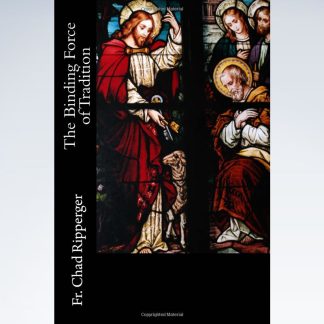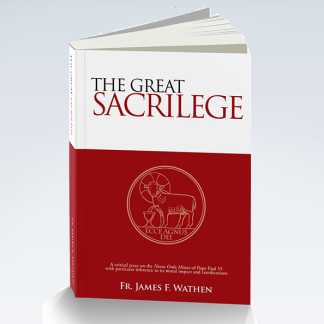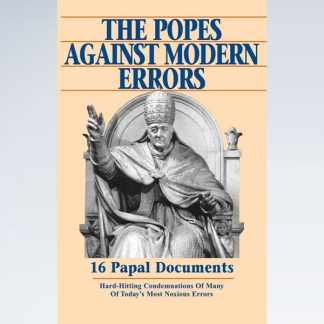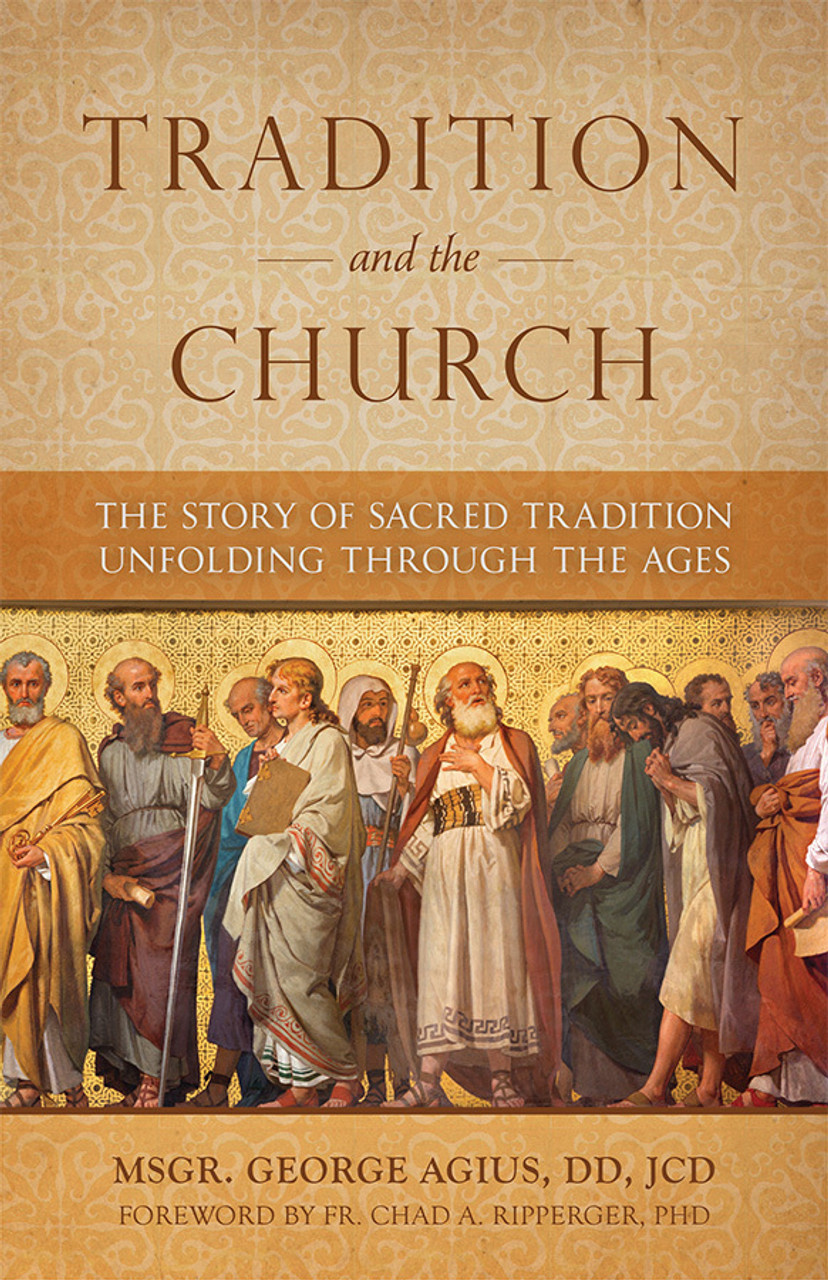
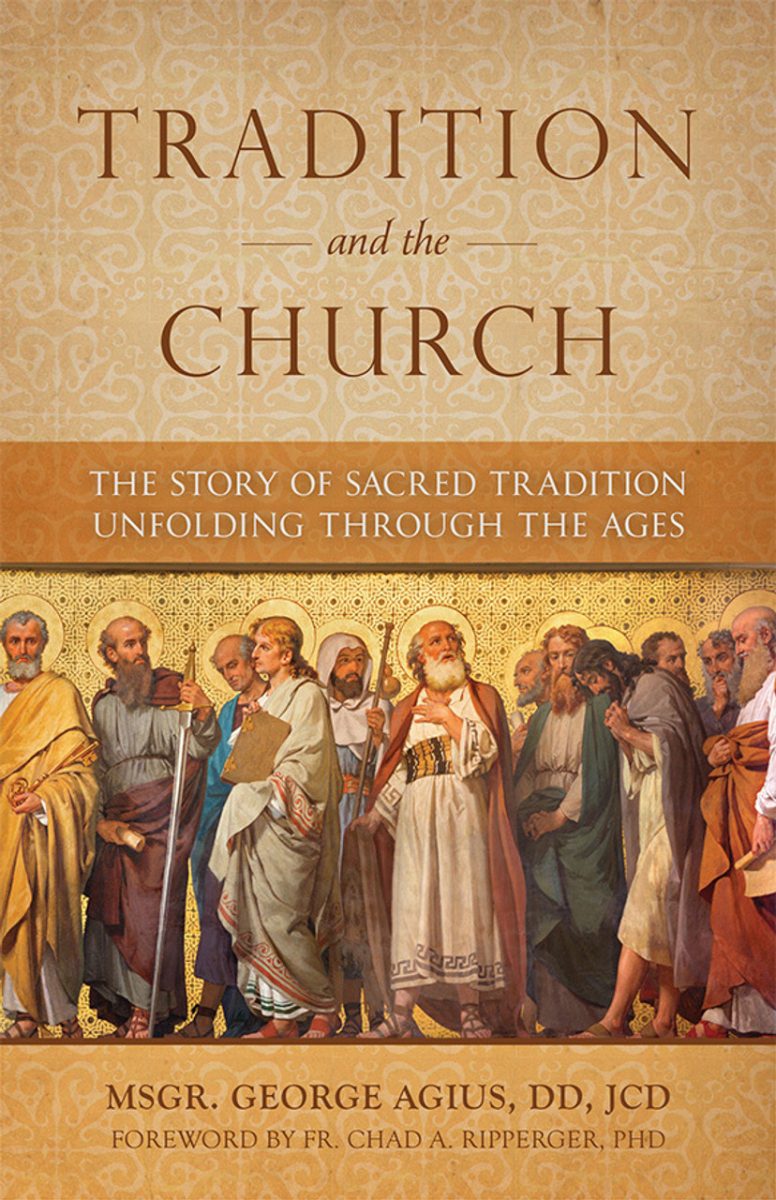
When Christ wished to institute something great and Indispensable in His Church, He promised it first, and conferred it afterwards. Such was the Institution of the Primacy of Peter and of His Church. But He not only established a Church. That is not too difficult a task. Men have also established Churches. They may be counted by the hundred. Many are gone; many more exist, and others will follow.
They are all founded on the sand of human frailty: hence not durable. God only can make His Church everlasting, because He Is with her “unto the consummation of the world,” and because He founded it on the rock. That rock Is Peter. “Thou art Peter (rock), and upon this rock I will build my Church, and the gates of hell shall not prevail against It.” Matth. XVI, 18. According to these words, Christ was to establish a Church not only, but to establish it on rock. That rock Is to be so strong, so great, so durable that It Is Indestructible. “The gates of hell shall not prevail against It“.
And what He promised before His death, He conferred after His Resurrection. He told Peter and only to Peter: “Feed my lambs'”—that is the faithful—”Feed my sheep” — that is “the mothers of lambs” — that Is again—the priests and bishops of the Church. To Peter only, Christ also said: “Confirm thy brethren“. The above words of Christ Jesus our Lord—brief as they are—contain the whole history of Religion—past, present, and future. It is the history of the establishment of the grandest institution upon earth: the Catholic Church—the work of God, not of men. It is the history of numberless vicissitudes and of man’s ingratitude towards the Creator. But it is also a history of triumphs throughout the ages over hell and heresy. The rock on which Christ founded His Church shall be beaten for all time by the waves of error and of human depravity, but it shall stand glorious forevermore “unto the consummation of the world”.
Every century has brought forth its peculiar error against the Church. So to-day under the cloak of religious unity, heresy demands a back-door entrance into the Catholic Church.
Pope Pius XI, happily reigning on the Chair of Peter, Issued an Encyclical Letter to all the Bishops of the world warning them of the approaching danger. He writes: “In the consciousness of Our Apostolic Office not to let the flock of the Lord be led astray by error, we Invoke your zeal to ward off this evil. Nothing Is more hallowed to Mother Church than the recall and the return of her wandering children to her bosom. Yet beneath the coaxing words (the appeal of non-Catholics for reunion with the Catholic Church), there is concealed an error so great that it would result in destroying utterly the foundation of the Catholic Faith“.
The Encyclical is a document of the first ecclesiastical importance to all Christianity. It is one of the landmarks in the long road of the heretics’ return to Mother Church. It is so adamantine that no doctrinal compromise is possible. “Heaven and earth shall pass away,” but the Pope’s attitude on Dogmatic Truths shall not pass away. It shall stand forever. One denial, one reverse, one compromise on Dogmatic Truths asserted by former Popes, or by the present Pope, is the end of the Catholic Church. Such a possibility is against the promises of Christ. “The gates of hell shall not prevail against it“.
The Holy Father first sets forth what non-Catholics ask of him. He gives then the reasons why he cannot comply with their demands. Finally, he invites them, as a good father, to their father’s house.
Having declared that “Not all who profess themselves Christians, are in agreement“, he says: “The authors of the plan for the confederation of all Christian Churches believe that Christ’s words ‘one fold and one shepherd only’ express a desire and a prayer of Christ Jesus that has been thus far unanswered.
They contend that the unity of faith and government, which is the sign of the true and only Church of Christ has almost never existed up to this time and does not exist to-day; it can be desired and perhaps in the future it can be obtained through general good will, but meanwhile, it must be considered a fiction.
They say, moreover, that the Church, by its very nature is divided into parts, that it consists of many Churches or particular communities, which are separated among themselves and, although, they have certain points of doctrine in common, differ in others; that each enjoys the same rights; that at most, the Church was the one and only Church between the Apostolic era and the First Ecumenical Councils . . . . There are some amongst them, who assume and grant that Protestantism has rejected inadvisedly certain articles of faith and certain external rites of worship, which are fully acceptable and useful, and which the Roman Church still preserves.
But they add immediately that the Church has corrupted the early religion by adding to it and by proposing for belief certain doctrines that are not only foreign to, but are opposed to the Gospel, among which they bring forward, chiefly, that of the primacy of jurisdiction assigned to Peter and his successors of the Roman See. . . .
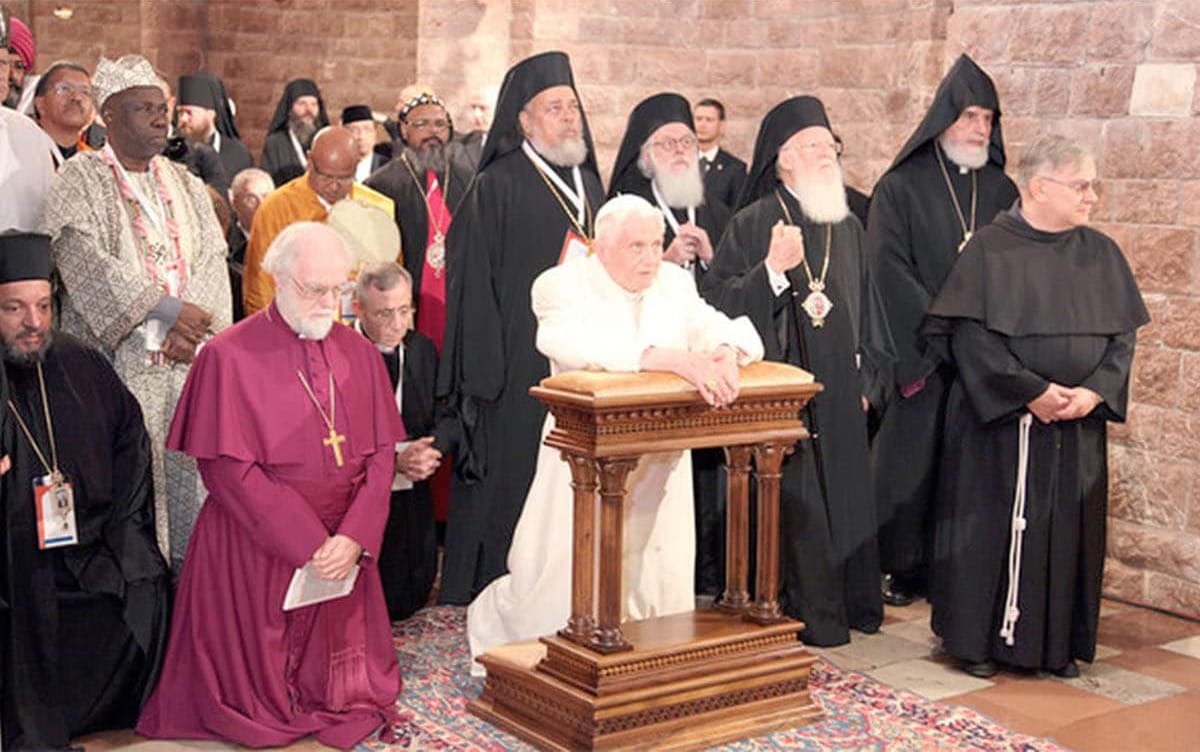
On such conditions it is clear that the Apostolic See cannot in any way participate in the reunions, and that Catholics cannot in any way adhere or grant aid to such efforts. If that would happen it would give authority to a false Christian religion, completely foreign to the one Church of Christ. Could we tolerate an iniquitous attempt to drag the truth and indeed the divinely revealed truth, to Mother Church than the recall and the return of her wandering children to her bosom. Yet beneath the coaxing words (the appeal of non-Catholics for reunion with the Catholic Church), there is concealed an error so great that it would result in destroying utterly the foundation of the Catholic Faith“.
Could we tolerate an iniquitous attempt to drag the truth and indeed the divinely revealed truth, to the level of bargains? For It Is the safeguarding of revealed truth now that Is being considered“.
The Encyclical goes on and says that If Jesus Christ sent the Holy Ghost upon the Apostles that they may be taught all truth, “could this doctrine of the Apostles disappear or even be darkened In a Church of which God Himself Is the ruler and guardian? And If Our Redeemer openly said that His Gospel cared not only for the apostolic period, but also for all future generations, could It be that the content of the faith would become. In the passing of time, so obscure and uncertain as to permit to-day the acceptance of opposed opinions? If that were true, one must likewise say that the coming of the Holy Ghost upon the Apostles and the permanence of the Holy Ghost in the Church, and even the teaching of Jesus Christ, have for these many centuries lost all efficacy and usefulness. To affirm this Is blasphemy“.
The Holy Father proceeds then to Illustrate, In a masterly way, the Incompatibility of Christian Societies based on private judgment with the Catholic Church founded on authority. “How could a Christian Society,” he says, “be even considered, whose members In matters of faith could each retain his own way of thinking and judging, although it were contrary to the belief of others? Through what agreement could men of opposed opinions become one and the same society of the faithful? How, for example, can they, who affirm that sacred Tradition is a true source of divine revelation, and they who deny it, become members of one Church? They who hold that an ecclesiastical authority formed of bishops, priests, and ministers Is divinely constituted, and they, who assert that little by little It has been Introduced through conditions of time and events?
They who adore Christ really present In the Most Holy Eucharist by that wonderful change of bread and wine, called transubstantlatlon, and they, who say that the Body of Christ Is present there only through the sign and the virtue of the Sacrament? They, who hold that In the Eucharist there Is a sacrifice and a sacrament, and they, who say that It Is only a remembrance or commemoration of the suffering of Our Lord?
They, who believed it good and useful to pray to the Saints, reigning with Christ, and above all to Mary, the Virgin Mother of God, and to venerate their Images, and they, who pretend that such a form of worship is wrong, because it draws from the honor due Jesus Christ, the mediator of God and men? In such differences of opinions, we do not know how a road may be paved to the unity of the Church save alone through one teaching authority, one sole law of belief, and one sole faith among Christians“.
To those, who claim that the Church of Jesus Christ Is made out of many branches, the Roman-Catholic branch, the Anglo-Catholic branch, the Greek-Catholic branch, etc., the Holy Father answers : “Since the mystical Body of Christ, that Is to say the Church, is, like the physical body a unity, a compact thing, closely joined together“, it would be false and foolish to say that Christ’s mystical Body could be composed of disjointed and separated members.
Whoever, therefore, is not united with it is not a member of it, nor does he communicate with its head, who is Christ/’ In the one Church of Christ no one is found and no one perseveres unless he recognizes and accepts obediently the supreme authority of Saint Peter and his legitimate successors. Did not the very ancestors of those, who were confused by the error of Photius, and the Protestants obey the Roman Bishop as the high shepherd of souls? Children did, alas, abandon their father’s house, but the house did not, therefore, fall in ruins, supported as it was by the unceasing help of God”.
Finally, the Holy Father makes a touching appeal to all non-Catholics to “return to the common father of all“; he has forgotten the unjust wrongs, inflicted against the Holy See and will receive them most lovingly. “If, as they repeat, they desire to be united with Us and with Ours, why do they not hasten to return to the Church ‘the Mother and mistress of all the followers of Christ’. Let these separated children return to the Apostolic See, established in Rome, which the Princes of the Apostles, Peter and Paul, consecrated with their blood, to this See, ‘the root and matrix of the Catholic Church’, not indeed with the idea or hope that ‘the Church of the living God, the pillar and ground of truth’, will abandon the integrity of the faith and bear their errors, but to subject themselves to its teaching authority and rule. Would that what has not been granted to our predecessors would be granted to Us, to embrace with the heart of a father, the children, over whom We mourn, in their separation from Us by evil discord“.
Needless to say, an infinity of different comments, of keen resentments, and we may also add, of impertinent insults followed the issue of this Encyclical Letter. This is unfortunate. But the Holy Father’s attitude, on a Scriptural basis, is the only possible one. All men have an obligation to belong to the Church, and Christ’s true Church is the Catholic, Apostolic, Roman Church. To her only the Divine promises have been made. They are unchangeable. The Holy Father, as the custodian of the Revelation, holds it impossible to conceive of a Christian Church where everyone is free to believe as he lists. However desirable a reunion of all churches might appear, there can be no surrender of revealed truths. There can be no compromise, no independence, no disjunction from the rock, on which Christ built His Church. Unity of Faith proceeds only from that rock. That rock is Peter and his legitimate successors.
Source: Tradition and the Church: The Story of Sacred Tradition Unfolding Through The Ages
by Msgr. George Agius.
Nihil Obstat
REV. PAUL WALDRON
Censor
Imprimatur
FRANCIS J. BECKMAN, D.D.
Bishop of Lincoln
March 28, 1928
Related: Ecumenism: Betrayal of the Orthodox Faith.

-
A Voice in the Wilderness: Archbishop Carlo Maria Viganò on the Church, America, and the World€24.06
-
“They Have Uncrowned Him” by Archbishop Lefebvre€18.33
-
Against the Heresies by Archbishop Lefebvre€24.11
-
The Binding Force of Tradition€12.49
-
The Great Sacrilege€24.11
-
The Popes Against Modern Errors: 16 Papal Documents€23.15
VIRGÓ SACRÁTA is a Christian mission-driven online resource and shop inspired from the beauty of Catholic faith, tradition, and arts. Our mission is to “Restore All Things to Christ!”, in continuing the legacy of Pope St. Pius X under the patronage of the Blessed Virgin Mary. “Who is she that cometh forth as the morning rising, fair as the moon, bright as the sun, terrible as an army set in battle array?” O Mary, conceived without sin, pray for us who have recourse to Thee.

